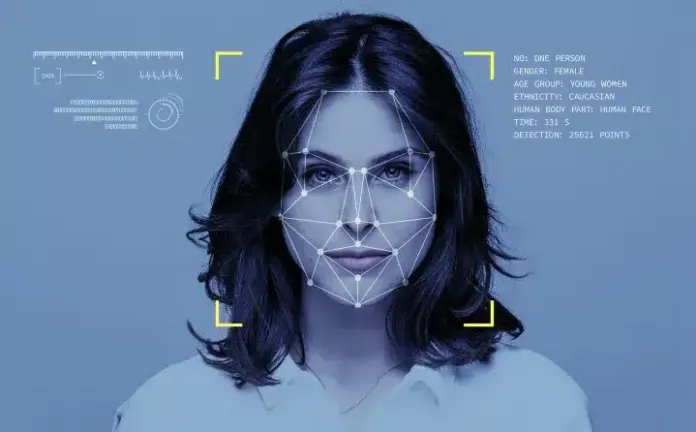Los Angeles, CA – Clearview AI’s facial recognition software “represents a clear and present danger to our societal norms and our privacy,” Consumer Watchdog wrote to the California Attorney General and the California Privacy Protection Agency. Consumer Watchdog called on the Attorney General and the privacy agency to bar Clearview AI from continuing to collect personal data and information in violation of California law.
A moratorium on the use of facial recognition technology in California ended at the beginning of the year, and state lawmakers failed to pass new protections in the recently-ended Legislative session.
Download the letter and report here.
Clearview AI’s technology covertly “scrapes” photographs, including personal profile images from sources online, often from social media websites without consent. Clearview AI then adds these photos to its database that powers its entire commercial operation. Armed with billions of images, Clearview AI applies its facial recognition algorithm to create a vast dossier of “facial maps” from the scraped images.1
Just last month, Clearview AI’s database topped over 40 billion images—doubling its volume since the Spring of 2022, according to news reports.
“Clearview AI operates with callous disregard for the privacy rights of individual citizens,” said Ryan Mellino, staff attorney for Consumer Watchdog and author of the report. “It is time for California’s top cop and the nation’s premier privacy protection agency to take action to protect our privacy.”
According to the report released today by Consumer Watchdog, existing laws give California regulators the tools they need to prevent further privacy abuses:
- Clearview AI appears to be unable to comply with the “right to opt-out” provisions of the California Consumer Privacy Act (“CCPA”). Clearview AI technology functions by automatically scraping images off the web without regard for whose images are being scraped, and whether the scraped images are of people who have previously prohibited Clearview AI from using or disclosing their biometric information. Therefore, Clearview AI appears to be unable to comply with the “opt out” requirements of California law, since people who directed Clearview AI to remove their data cannot prevent their image from being re-appropriated and sold by Clearview AI.
- Clearview AI flouts laws designed to protect the personal data of children. Certain provisions of the CCPA and its implementing regulations require special handling of the personal information of individuals under the age of sixteen and prohibit businesses from selling or sharing the personal data of children without affirmative consent, yet Clearview AI makes no effort to obtain such consent. If Clearview AI is incapable of obtaining permission to use the personal data of minors, the solution is not to continue to allow Clearview AI to flout the law, but to prevent Clearview AI from continuing to violate the rights of California’s children by shutting down Clearview AI’s illegal data collection operations altogether.
- Clearview AI promotes its technology to law enforcement even though the technology infringes upon Constitutionally-protected rights. “Evidence suggests [facial recognition technology] may be least accurate on those it is most likely to be used on—African Americans.”2 The “real-world consequences” of such errors include “the investigation and arrest of an unknown number of innocent people and the deprivation of due process of many, many more.”3
While Clearview AI is barred from selling its product to private businesses under a nationwide injunction, no restrictions currently apply to Clearview AI’s ability to contract with or sell its technology to government and law enforcement agencies in California. Moreover, Clearview AI continues to collect data and images in violation of California law.
As noted in the report:
“This technology has a chilling effect, especially on people of color, who may be ‘deterr[ed ] from participating in marches or rallies, or speaking out against injustice, for fear of being permanently included in law enforcement databases.’4 ‘Studies show that when individuals believe the government is surveilling them, they are likely to avoid engaging in activities protected by the First Amendment.’”5
In a letter accompanying the report sent to the California Attorney General and the California Privacy Protection Agency, Consumer Watchdog wrote:
“We urge you to use all the powers available to your offices to enjoin the use of Clearview AI’s facial recognition technology by any public agency or department, and to take all punitive action deemed appropriate in light of Clearview AI’s repeated and flagrant violations of law. Doing so will demonstrate your commitment to protecting the rights of California’s citizens and preventing the unwarranted ‘encroachment on personal freedom and security caused by increased surveillance and data collection activity’ that voters so many years ago sought to prohibit with their 1972 amendment to the California Constitution guaranteeing the inalienable right to ‘pursue and obtain privacy.’”6
1 Kashmir Hill, The Secretive Company That Might End Privacy as We Know It, The New York Times (Jan. 18, 2020), https://www.nytimes.com/2020/01/18/technology/clearview-privacy-facial-recognition.html.
2 Police Face Recognition Technology, Georgetown University Law Center, Center on Privacy and Technology, accessed Nov. 17, 2023, https://drive.google.com/file/d/1trfTqLQXW4MOyQoxaMSmrF02kz-DC6MU/view.
3 Newsletter, A Forensic Without the Science: Face Recognition in U.S. Criminal Investigations, Georgetown University Law Center, Center on Privacy and Technology, accessed Nov. 17, 2023, https://www.law.georgetown.edu/privacy-technology-center/publications/a-forensic-without-the-science-face-recognition-in-u-s-criminal-investigations/.
4 Senators Ed Markey and Jeff Merkley & Representatives Pramila Jayapal and Ayanna Pressley, Letter to DHS Secretary Alejandro Mayorkas Regarding Clearview AI, Feb. 9, 2022, at https://www.markey.senate.gov/imo/media/doc/letters_-_federal_gov_use_of_clearview_ai.pdf.
5 Ibid.
6 White v. Davis (1975) 13 Cal.3d 757, 774.
-end-




















































